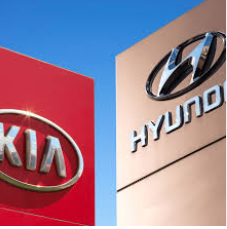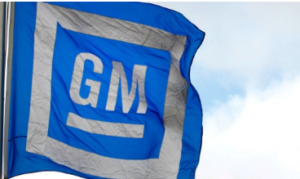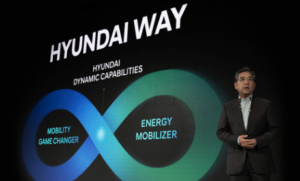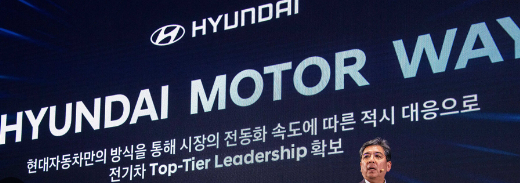Keywords: General Motors, Hyundai Motor, strategic alliance, automotive collaboration, vehicle development, clean-energy technologies, supply chain optimization, capital efficiency, automotive industry news.
Detroit – In a bold move to enhance industry efficiency and foster innovation, General Motors (GM) and Hyundai Motor have entered into a groundbreaking agreement to explore strategic collaboration. This nonbinding memorandum of understanding (MOU) marks a significant shift in the automotive landscape, aiming to streamline capital expenditure and amplify operational synergies.
Key Areas of Collaboration:
- Vehicle Development: The partnership will focus on the co-development of both passenger and commercial vehicles, leveraging the strengths of each automaker to accelerate product innovation and market competitiveness.
- Cutting-Edge Technologies: GM and Hyundai are set to join forces in advancing internal combustion engines, as well as clean-energy solutions including electric and hydrogen technologies.
- Supply Chain Optimization: The agreement outlines plans for combined sourcing strategies, targeting critical raw materials such as battery components and steel to drive down costs and enhance supply chain resilience.
Mary Barra, GM’s Chair and CEO, emphasized the strategic importance of the alliance: “This collaboration leverages the unique strengths and innovative capabilities of GM and Hyundai. Our goal is to accelerate the delivery of cutting-edge vehicles to customers, while achieving greater operational efficiencies.”
Euisun Chung, Executive Chair of Hyundai Motor Group, echoed these sentiments: “Our partnership with GM will unlock new opportunities for enhancing competitiveness across key markets. By combining our expertise, we aim to deliver superior value to customers and drive cost efficiencies through innovative technologies.”
The MOU comes at a time when the automotive industry is intensifying its focus on capital efficiency. Following years of substantial investment in electric, autonomous, and software-defined vehicles, both GM and Hyundai are now seeking to optimize their financial strategies and operational models.

This agreement also underscores Hyundai’s strategic shift towards collaboration, marking its first major partnership of this kind. GM, with its history of varied partnerships, is looking to leverage this new alliance to build on previous collaborations and overcome past challenges.
Industry experts anticipate that this alliance will not only foster technological advancements but also set a new standard for collaborative efforts in the automotive sector, paving the way for more efficient and innovative vehicle solutions.
For the latest updates and detailed analysis on this strategic partnership, stay tuned to our automotive news coverage.
Key Collaboration Areas:
- Vehicle Development and Production:
- Passenger Vehicles: The partnership will focus on the joint development of new passenger vehicles, incorporating advanced design and engineering capabilities from both GM and Hyundai.
- Commercial Vehicles: There will be a concerted effort to enhance the production of commercial vehicles, leveraging economies of scale and shared technological advancements.
- Technological Innovation:
- Internal Combustion Engines: The two automakers will explore opportunities to refine and innovate internal combustion engine technologies, aiming for greater efficiency and reduced emissions.
- Electric and Hydrogen Technologies: GM and Hyundai will collaborate on advancing electric vehicle (EV) and hydrogen fuel cell technologies. This includes developing new powertrains and expanding their respective electric vehicle portfolios.
- Supply Chain and Sourcing:
- Battery Materials: The agreement outlines a strategic approach to combined sourcing of critical battery raw materials, including lithium, cobalt, and nickel, essential for EV production.
- Steel and Components: Both companies will review opportunities for joint procurement of steel and other essential components to reduce costs and enhance supply chain stability.
Strategic Objectives and Industry Impact:
- Capital Efficiency: The collaboration is a response to the automotive industry’s increasing focus on capital efficiency. Both GM and Hyundai aim to optimize their capital expenditures following a period of substantial investment in emerging technologies.
- Competitive Advantage: By pooling resources and expertise, the alliance seeks to accelerate the development of competitive vehicles and innovative solutions, enhancing their market positioning and customer value.
Mary Barra, Chair and CEO of GM, highlighted the strategic significance of the partnership: “This collaboration represents a pivotal moment for GM and Hyundai. By leveraging our collective strengths, we aim to deliver cutting-edge vehicles faster and more efficiently, while driving down costs and enhancing value for our customers.”
Euisun Chung, Executive Chair of Hyundai Motor Group, emphasized the potential benefits of the alliance: “Our partnership with GM will unlock new opportunities for innovation and efficiency. By combining our expertise, we can enhance our competitiveness in key markets and deliver superior value through advanced technologies.”

Historical Context and Future Prospects:
- Previous Collaborations: GM has engaged in several high-profile partnerships in the past, including with Honda Motor and Nikola Corp., with varying degrees of success. Hyundai’s strategic shift towards collaboration marks its first major partnership of this kind, signaling a new phase in its global strategy.
- Industry Trends: The automotive industry is experiencing a shift towards greater collaboration and resource-sharing as companies navigate the challenges of transitioning to new technologies and sustainable practices.
This MOU between GM and Hyundai is expected to set a new benchmark for strategic partnerships in the automotive sector. By addressing key areas such as vehicle development, technological innovation, and supply chain efficiency, the alliance aims to drive significant advancements and deliver enhanced value to customers.






